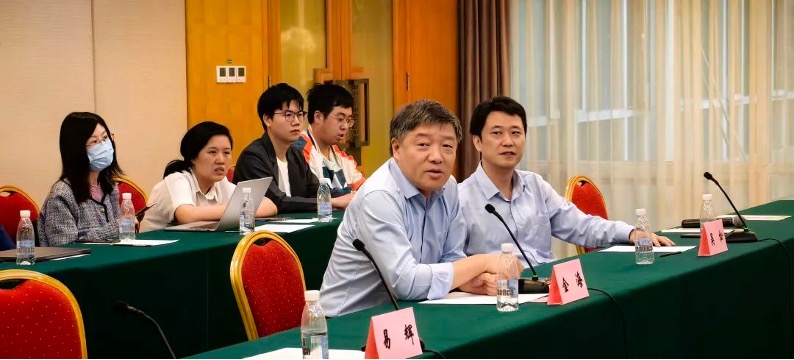Focus on the Frontier of AI: Academic Forum on the 50th Anniversary of the Construction of Computer Science and Technology Major was Held
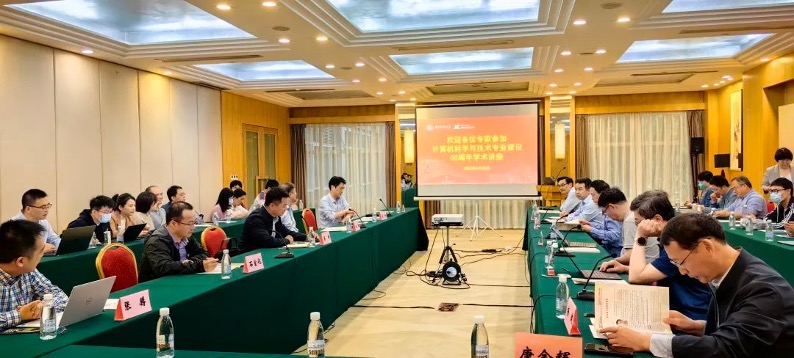
On the morning of May 26, the second series of activities of the academic forum on the 50th anniversary of the construction of the computer science and technology major was successfully held. Hui Yi, Secretary of the Party Committee of the School of Computer Science and Technology, HUST, attended the forum and delivered a speech. Professor Song Wu, Deputy Dean of the School, presided over the forum. More than 60 teachers and students of the School attended the forum.
Hui Yi warmly welcomed all the experts to the forum and expressed his heartfelt thanks to them for their continuous concern and support for the development of the School of Computer Science and Technology. He briefly reviewed the development history of the school and looked forward to better summarizing the past 50 years of development and planning for the next 50 years of advancement under the guidance of the experts.He encouraged the participants to fully utilize the platform of the Academic Forum on the 50th Anniversary of Major Construction, actively communicate and discuss relevant topics, and work together to create a scholarly atmosphere characterized by unity, cooperation, morality, and innovation. By doing so, they could make a joint contribution to the development of the School.
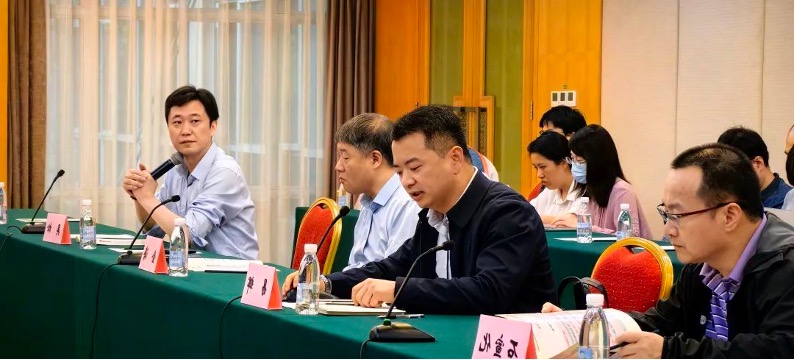
Professor Yun Yang from Swinburne University of Technology in Australia presented on "Cost-effective Big Data Management in Cloud", fully explaining the latest research results of him and his research team in big data management in cloud computing.In the report, Professor Yang introduced how to achieve efficient and low-cost management of big data to meet the needs of a wide range of applications in the pay-as-you-go model of cloud computing. The report covered many topics such as data placement, data storage, and data reliability, with a special emphasis on cost-effectiveness as the leading idea, and pointed out its practical application and value in various applications from a broader perspective. Professor Yun Yang's report provided a valuable perspective for understanding the core issues and solutions of big data management under the cloud computing environment.
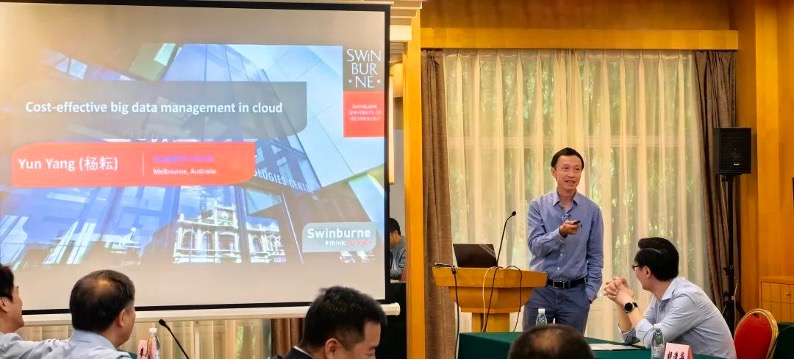
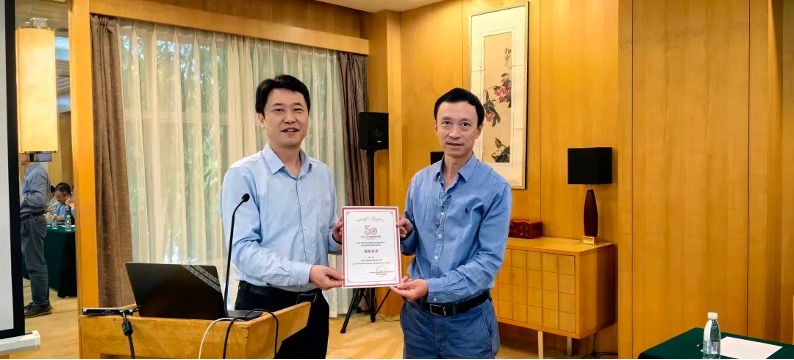
Professor Jianhua Tao from Tsinghua University presented on "Personalized Character Audio Generation and Forgery Detection Technology", detailing how to achieve highly humanized and personalized character audio generation through big data and advanced algorithms. This technology has wide applications in fields such as communication, education, finance, social, and entertainment. In the report, he warned of the potential threats of audio forgery technology and called for in-depth research and review in this field to prevent its malicious use. At the same time, Professor Tao also demonstrated some of the latest forensic techniques, including forged voice identification, forgery traceability analysis, and sound generation and forensic adversarial gaming for complex scenarios, proposing new ideas and solutions for better identifying and preventing audio forgery.
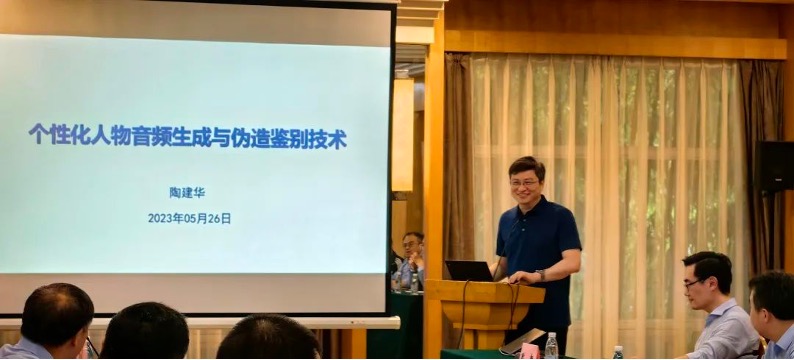
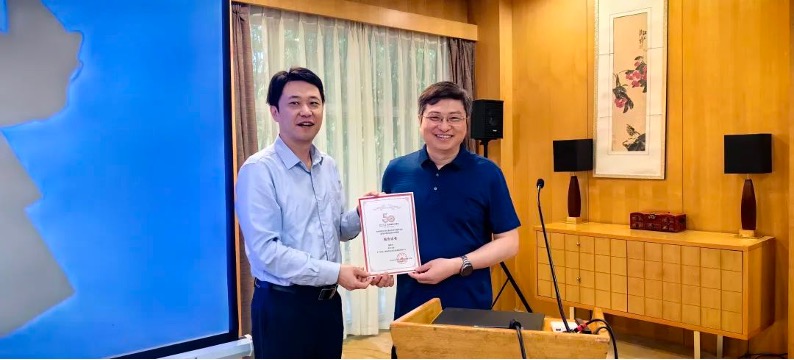
Professor Enhong Chen from the University of Science and Technology of China presented on "Learner Competency Modeling for Artificial Intelligence in Education Scenarios: Research and Prospects", introducing the important role of intelligent technologies such as big data analysis and machine learning in the context of education digitization. Professor Chen emphasized that personalized teaching on a large scale is one of the core tasks of Artificial Intelligence in Education, and further interpreted the key role of learner competency modeling of Artificial Intelligence in Education. This model should not only consider students' knowledge mastery but also take into account various factors, including the difficulty of the questions, the students' learning environment, and their historical learning status. Professor Chen's in-depth interpretation of the current state of development and future trends of Artificial Intelligence in Education offers a valuable perspective on the trends and application scenarios of this field.
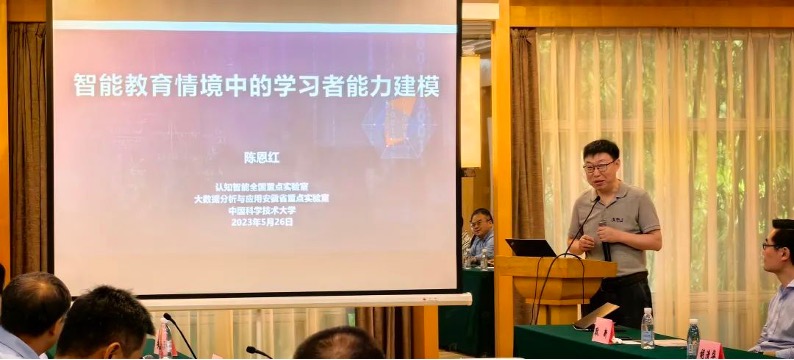
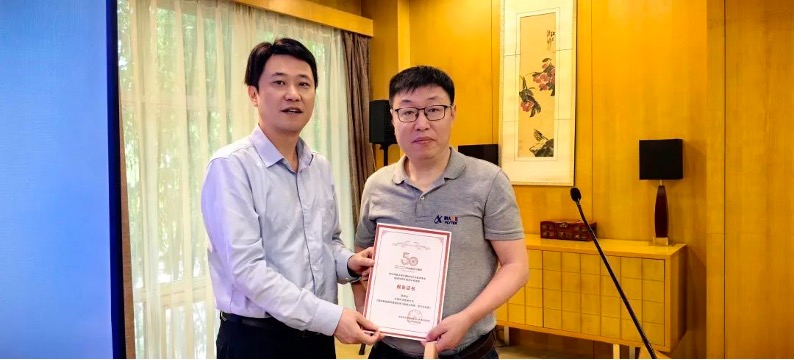
Professor Qinghua Hu from Tianjin University explored the important challenges facing data science today with the topic of "Dynamic Fusion of Low-Rank Multi-Modal Data." With the rapid development of sensor technology, we are facing an era of explosive data growth. These massive amounts of data are everywhere, from medical diagnosis to robotics, scientific detection to social media analysis. However, these data not only come from different sensors, but also vary in formats, quality, and reliability. In this context, how to effectively integrate and utilize these low-rank, multi-source, and heterogeneous data has become an increasingly important research field. In the presentation, Professor Hu systematically introduced the current status and existing problems of multi-modal data fusion and shared the unique strategies of the human brain in processing multi-sensory data fusion. He also introduced a new dynamic trustworthy fusion model and algorithm that provides a whole new perspective for processing and interpreting big data in the complex real-world scenarios.
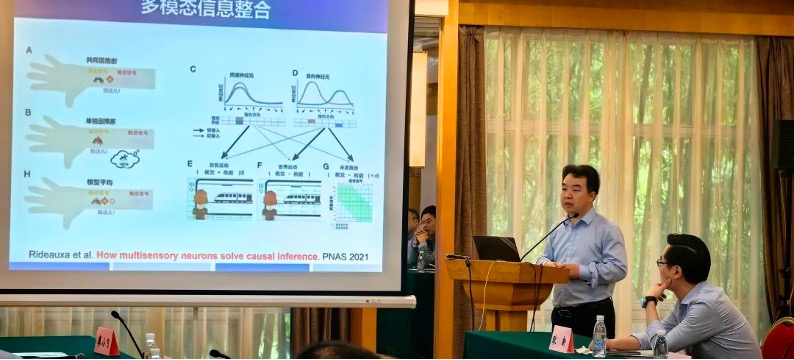

Professor Xin Geng from Southeast University presented a new machine learning concept, "Machine Learning's 'Gene': Making Machines Learn Like Humans." Combining machine learning with evolutionary theory of biology, he introduced a possible revolutionary change for the deep learning field under the theme of "Learngene." Professor Geng deeply analyzed the challenges of current deep learning, including the excessive growth of data scale and model parameters, as well as the increasing research and application threshold. He proposed that by extracting the "Learngene" from large models and applying it to lightweight models, machines can mimic the way humans inherit knowledge from genes and learn in a more efficient and adaptive way. This can not only reduce the implementation threshold of machine learning, but also further stimulate innovation and development in the field of deep learning.
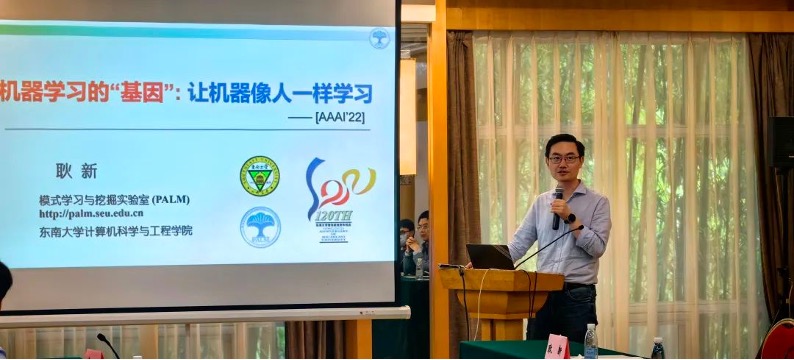
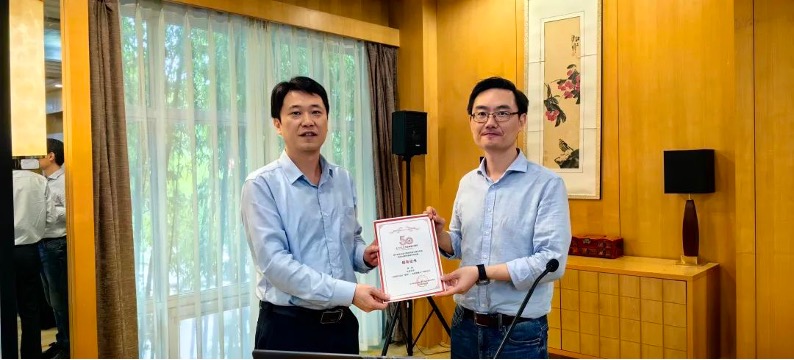
With the theme of "Learning Method Based on Interval Distribution Optimization", Associate Professor Teng Zhang from the School of Computer Science and Technology, gave an in-depth explanation and discussion on the new challenge in machine learning - how to optimize the interval distribution efficiently. He elaborated on the classical large margin method in statistical learning, with emphasis on the concept of "interval distribution," which is more critical than the original "minimum interval" optimization target. His report pointed out that recent research on boosting algorithms had shown that optimizing only the minimum interval could not ensure excellent generalization performance, and optimizing interval distribution was particularly critical. He also shared how to explicitly optimize the interval distribution in machine learning tasks and establish a new statistical learning paradigm of the optimal interval distribution learning machine.

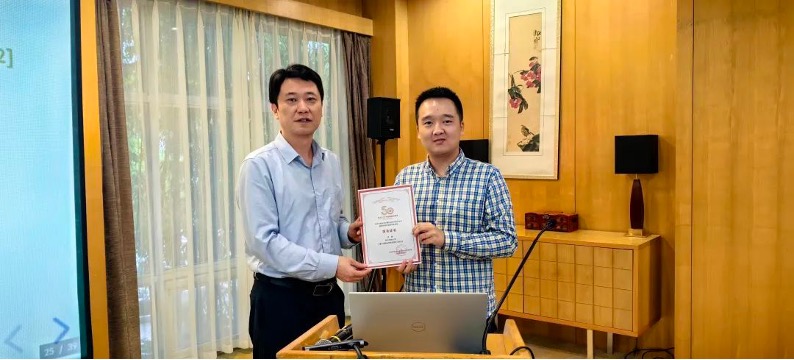
Finally, Professor Hai Jin, Director of the Academic Committee of the School, delivered a concluding speech. He expressed his deep gratitude to all the experts who participated in the event and suggested the School speed up the development in the field of artificial intelligence and make a well-designed layout for the future development of the School’s disciplines.
